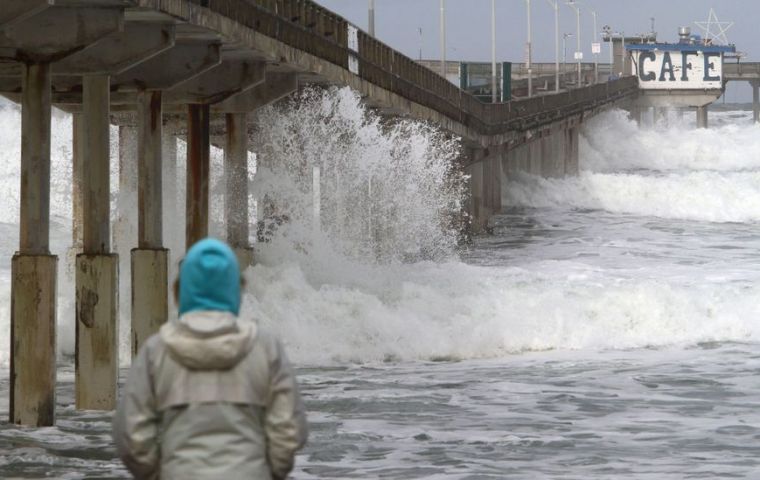MercoPress. South Atlantic News Agency
Onset of “El Niño” announced
 The effects of El Niño are to be felt globally, it was explained
The effects of El Niño are to be felt globally, it was explained The US Oceanic and Atmospheric Administration (NOAA) announced Thursday the onset of “El Niño,” a weather phenomenon characterized by a warming of the surface of the equatorial eastern Pacific Ocean that occurs every 2 to 7 years, which can increase the risk of heavy rains and droughts in some parts of the world and lead to record temperatures.
NOAA explained that El Niño tends to moderate hurricane activity in the Atlantic, favoring them in the Pacific. On the other hand, La Niña, a phenomenon that developed in the last three years, tends to cause a decrease in temperatures. La Niña produces a large-scale cooling of the surface waters of the central and eastern parts of the equatorial Pacific. It generally has weather and climate effects opposite to those of El Niño.
“Depending on its strength, El Niño can cause a variety of impacts, such as increasing the risk of heavy rains and droughts in some parts of the world,” said NOAA climatologist Michelle L'Heureux.
“Climate change may exacerbate or mitigate certain El Niño-related impacts. For example, El Niño could generate new temperature records,” she added.
El Niño arises from unusually warm waters in the eastern Pacific, near the coast of South America, and is usually accompanied by a slowing or reversal of the easterly trade winds.
Last month, the World Meteorological Organization (WMO) predicted that the period 2023-2027 would be the hottest ever recorded on Earth, under the combined effect of El Niño and global warming caused by greenhouse gas emissions.
Australia warned this week that El Niño will increase temperatures in a country already vulnerable to wildfires. The influence of the phenomenon in the United States is weak during the summer, but more pronounced from late fall through spring, NOAA said in its statement.




Top Comments
Disclaimer & comment rulesCommenting for this story is now closed.
If you have a Facebook account, become a fan and comment on our Facebook Page!